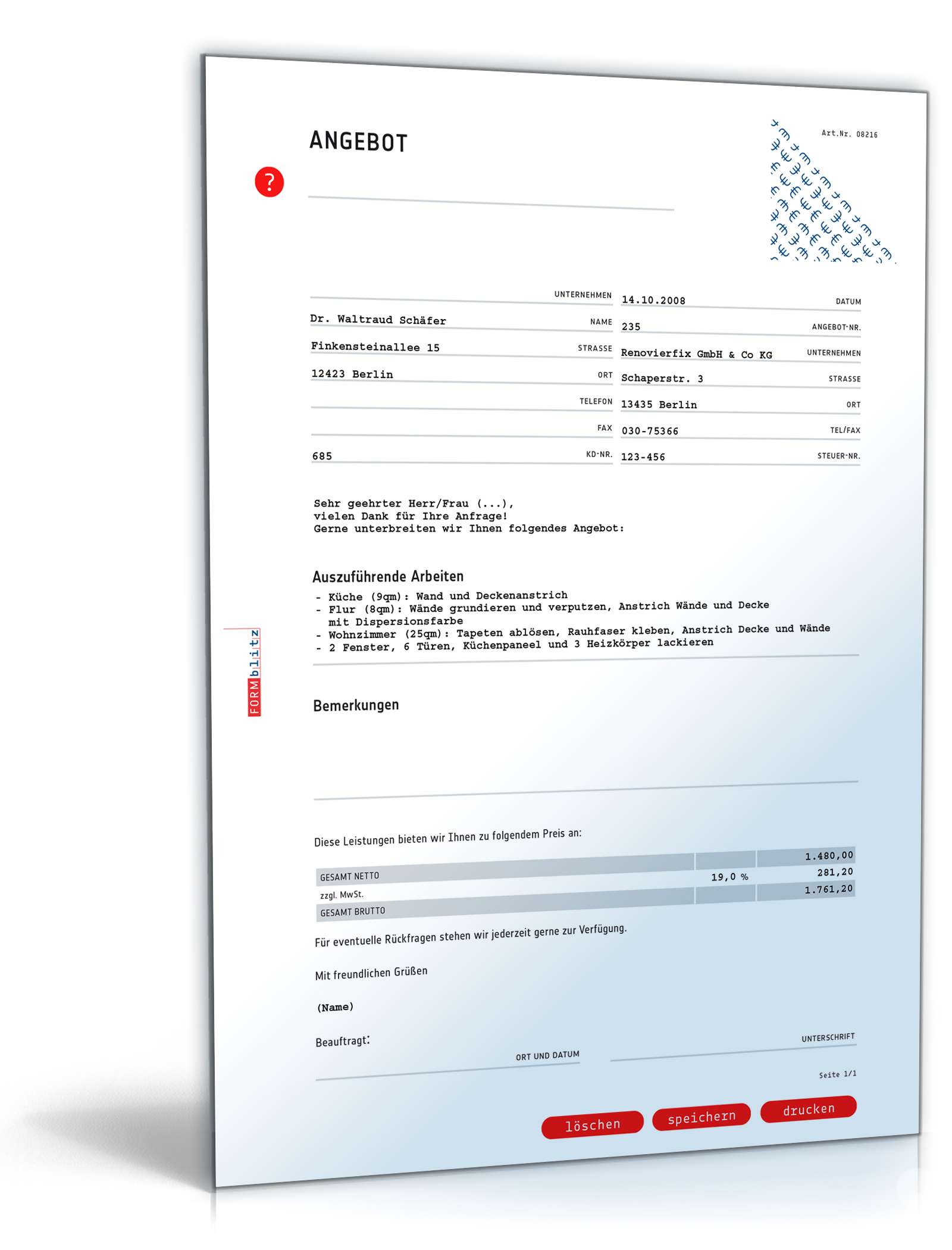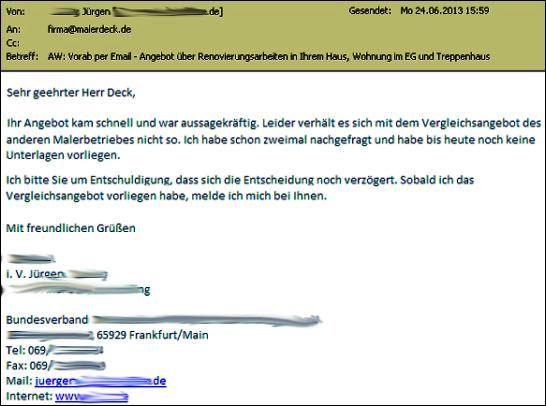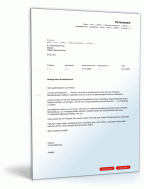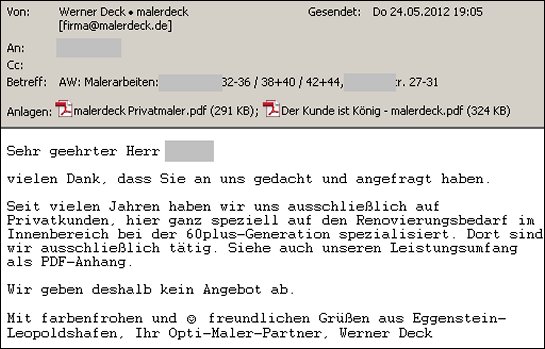Muster Absage Angebot Handwerker
Der second hand buchladen müßiggang ist teil der association 14a in dem unter anderem auch beratungen zur verfügung stehen.

Muster absage angebot handwerker. Hier finden sie aktuelle news zu den einzelnen fachbereichen. More power with print nach dem großen erfolg der preisgekrönten roadshow the power of print geht die creatura initiative im februar und märz 2019 mit einem neuen veranstaltungsformat wieder auf deutschland tour. Der ikea service lässt auch auf der homepage wwwikeade keine wünsche übrig. Aus der teilung deutschlands nach 1945 entstanden war die ddr bis zur friedlichen revolution im herbst 1989 eine kommunistische bzw.
Brief kommunikation ratgeber erfolgreich briefe schreiben tipps textbeispiele und formulierungshilfen für 18 offizielle anlässe von a wie anfrage bis z wie zusage. Vibrio schildert seine schlechten erfahrungen mit kaffee partner und viele kunden diskutieren probleme bei vertragskündigung und vor gericht. Finde für alles den passenden reim. Vier große buchstaben stehen für ein bekanntermaßen sehr serviceorientiertes möbelhaus aus schweden.
Betonung lateinisch und deutsch prométheus ist eine gestalt der griechischen mythologie. Wenn sie unterlagenanlagen versenden ist das oftmals schon ein vielleicht angebot deshalb sollte es immer sympathisch und attraktiv formuliert werden. Beratungen finden in gesonderten räumen statt welche sich an den buchladen anschließen. Beispiel unterlagen zusenden aufklappen.
























































